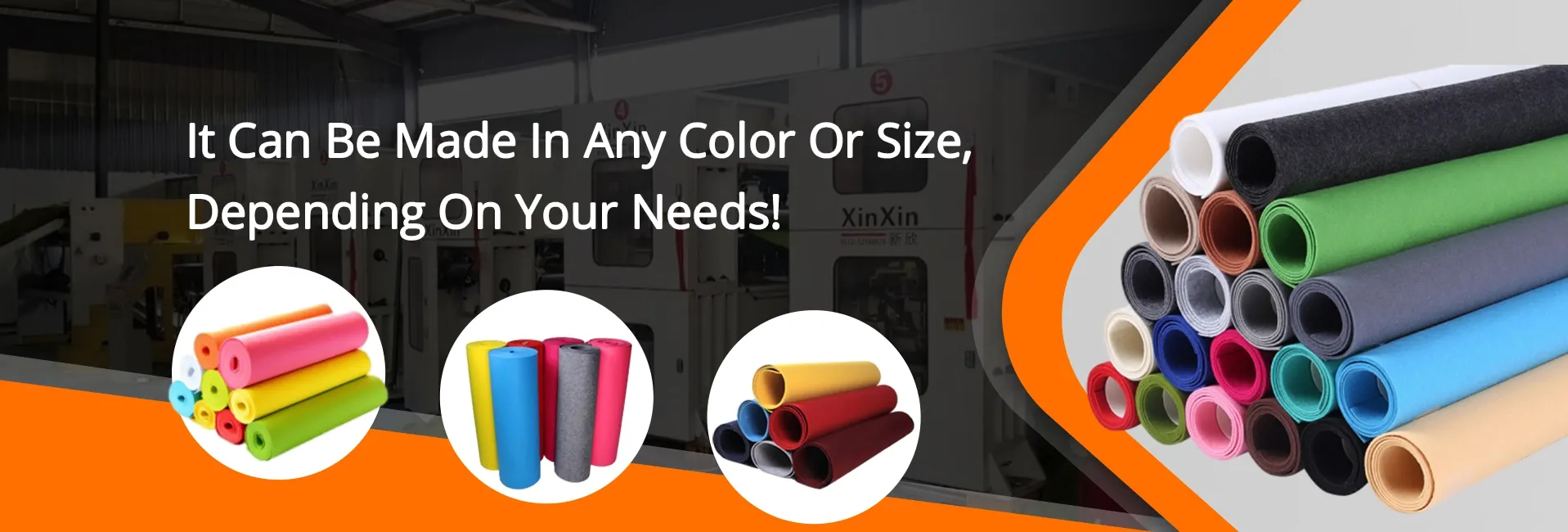Understanding the Benefits and Uses of Industrial Felt in Manufacturing Processes
Industrial Felt Essential Material for Diverse Applications
Industrial felt is a versatile and durable material that has found its way into numerous industries due to its unique properties. Made from fiber, industrial felt is characterized by its dense, non-woven texture, which is produced through a combination of mechanical and thermal processes. This article explores the significance of industrial felt, its applications, manufacturing processes, and the benefits it offers across various sectors.
The manufacturing of industrial felt typically involves the use of wool, polyester, acrylic, or a blend of these fibers. Wool felt is particularly favored for its natural resilience and insulating properties, while synthetic felts provide durability and resistance to various chemicals and moisture. The production process involves matting, condensing, and pressing the fibers together, creating a thick and robust material. Once produced, industrial felt can be treated with coatings to enhance its performance in different environments, making it suitable for a wide range of applications.
One of the primary applications of industrial felt is in the automotive industry. It is used for sound insulation, vibration dampening, and as a cushioning material in various automotive components. Felt can be found in door panels, carpets, and headliners, contributing to a quieter and more comfortable ride. The excellent thermal properties of industrial felt also make it useful for heat insulation in engine compartments and as a liner for trunk spaces.
Another significant application of industrial felt is in the manufacturing of machinery and equipment. It is often employed as a sealing material, preventing dust and particles from entering critical components. In this regard, industrial felt plays a crucial role in maintaining the functionality and longevity of machines by reducing wear and tear. Additionally, felt’s high absorbency allows it to be used in applications requiring oil or liquid absorption, further protecting equipment from damage.
industrial felt

In the construction industry, industrial felt is commonly used as an underlayment for roofing systems. It provides a barrier against moisture, ensuring that roofs remain dry and structurally sound. Roofing felt is essential in extending the lifespan of roofing materials and preventing leaks, which can lead to significant damage. Furthermore, industrial felt is used in flooring applications, providing cushioning and support beneath carpets and tiles, enhancing comfort and durability.
The textile industry also relies heavily on industrial felt for various applications. It is widely used in the production of handbags, shoes, and accessories due to its aesthetic appeal and durability. Designers often appreciate the unique textures and colors available in industrial felt, allowing them to create innovative products that stand out in the market.
Aside from its practical applications, industrial felt is also an eco-friendly material. Many manufacturers are increasingly using recycled fibers to produce felt, reducing waste and promoting sustainability. This aspect makes industrial felt an attractive choice for companies seeking to minimize their environmental impact.
In conclusion, industrial felt is a remarkable material with a vast range of applications across different industries. Its unique properties, including durability, sound insulation, and moisture resistance, make it indispensable in sectors like automotive, construction, and textiles. As industries continue to seek innovative solutions and sustainable materials, the role of industrial felt will undoubtedly expand, solidifying its place as a key element in modern manufacturing and design. With ongoing advancements in production techniques and a growing emphasis on eco-friendliness, the future of industrial felt looks promising.
-
What Makes Felt a Great Choice?NewsNov.19,2024
-
Total Mixed Ration (TMR) Feed for CattleNewsNov.19,2024
-
The Ultimate Guide for Felt Polishing WheelsNewsNov.19,2024
-
Industrial Felt for Various ApplicationsNewsNov.19,2024
-
Felt Makeup Bags and Inserts BagsNewsNov.19,2024
-
Choosing the Right Hotel TowelsNewsNov.19,2024
-
Your Go-To Guide For Affordable Wholesale Wool FeltsNewsOct.31,2024







